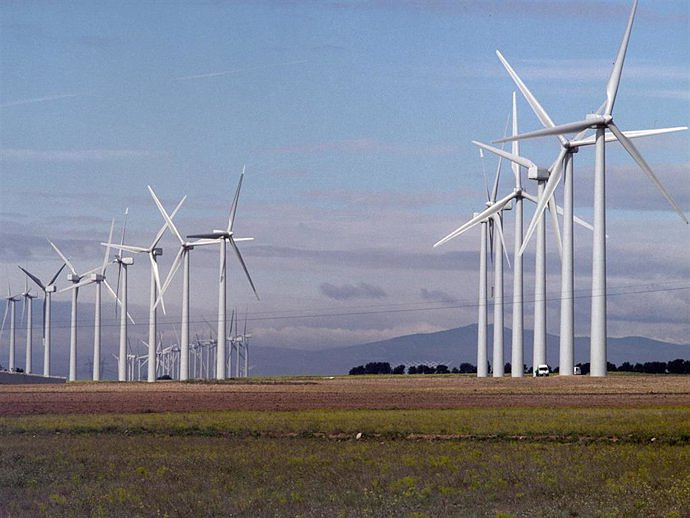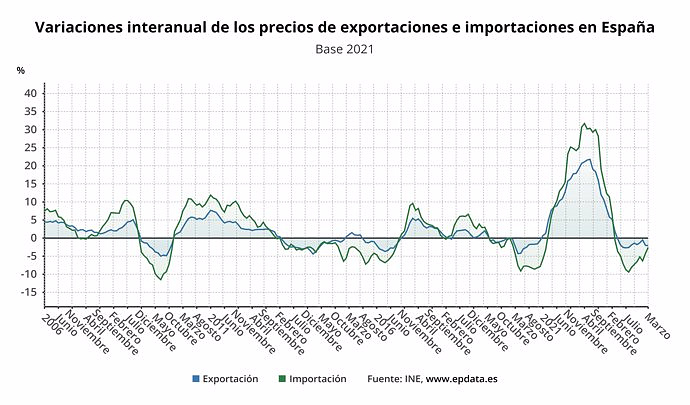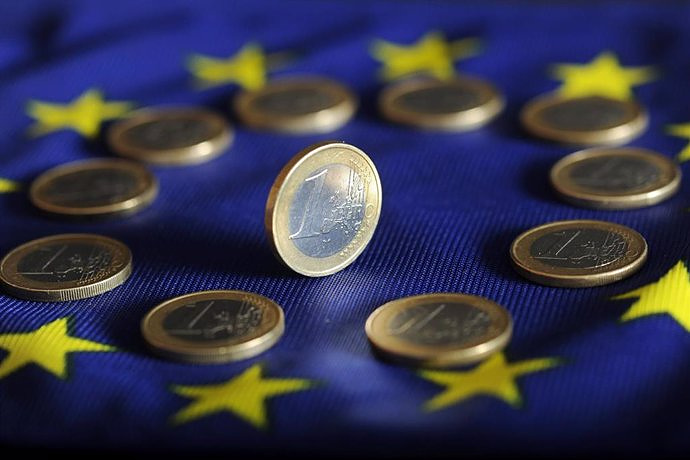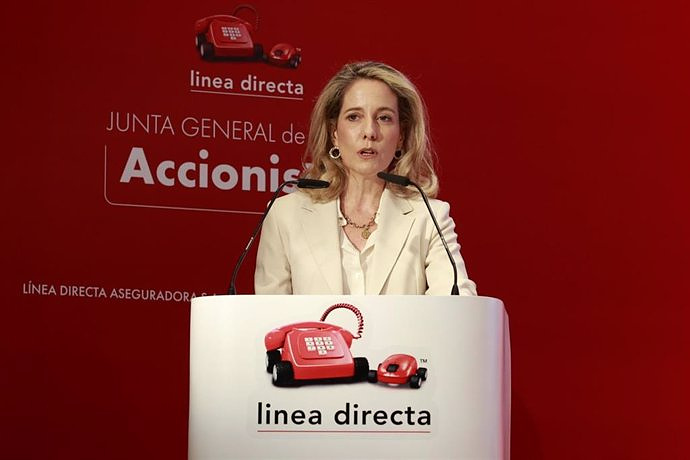BRUSSELS, June 8 (EUROPA PRESS) -
Spain was the fourth member state of the EU in which more irregularities were detected in the management of European agricultural and structural funds between 2017 and 2021 and is behind Poland, Romania and Italy and with 10.7% of the cases at community level, according to the annual report published by the European Anti-Fraud Office (OLAF).
The agency detected 3,178 irregularities in Spain related to the management of Rural Development funds and the Common Agricultural Policy (PAC) between 2017 and 2021, with an impact on 0.98% of the funds received, although only eight investigations concluded, a relatively low number.
Spain is fourth in this section, far behind Poland and Romania, where 4,039 and 3,738 frauds were found, respectively, followed by Italy with 3,369 cases. On the opposite side are Luxembourg, 3 irregularities, Cyprus, 46, and Malta with 56.
The figure contrasts with the data for the period between 2015 and 2019, when the agency detected 11,029 irregularities in Spain related to the management, in this case, of the Cohesion funds and the Common Agricultural Policy (CAP), with an impact on 2.7% of the funds received, although only four investigations were concluded.
The European Anti-Fraud Office has recommended this Wednesday that more than 500 million euros be recovered from the 2021 European budget and that prevention against fraud of the funds included in the Recovery and Resilience Mechanism be promoted.
In its study, OLAF has underlined that 527.4 million euros could be recovered from the European budget, after concluding 212 open investigations and preparing almost 300 recommendations for the most relevant national and European authorities.
The OLAF report has also shown, in relation to the investigations undertaken, that they have detrimental effects on the environment, such as a reforestation project that was never carried out or a collapsed pipe for drinking water, as well as other frauds in the customs area and waste smuggling.
In this sense, the report highlights the dismantling in Spain of the most active organization in the import and illegal treatment of fluorinated gases, the largest operation at European level against greenhouse gas fraud, which has intervened more than 27,000 kilograms of gases fluorinated and discovered more than 180,000.
"Human health and safety, and the environment are increasing the collateral damage of fraud schemes", said OLAF's Director General, Ville Itälä, who stressed that these segments increase their relevance due to the funds allocated to the green transition.
The study reveals that fraudsters continue to profit from the pandemic and have become more sophisticated, since the most worrying phenomenon is the infiltration of organized criminal groups in administrative irregularities, such as double financing, conflict of interest or manipulation of offers.
Given that 37% of the Recovery and Resilience funds will go to the green transition, OLAF has detected that the fraudsters have focused on ecological projects as well as digital ones, another of the pillars of the Next Generation EU funds. Examples include more sustainable software projects, alternative pesticides, forests or airplanes.
In addition, OLAF has alerted about irregularities linked to COVID vaccines. In this framework, the scammers posed as intermediaries and asked the authorities to make payments to ensure the arrival of vaccines, and then disappear with the money. These fraud attempts accounted for almost 1.2 billion doses of vaccines worth €16.4 billion, although OLAF's intervention helped prevent them.
Also with regard to tobacco, OLAF has saved 90 million euros to Member States with its interventions after, together with other collaborating authorities, they prevented 437 million illegal cigarettes from entering the Community market. In addition, the institution helped the national authorities to confiscate 372 million tons of raw tobacco.

 Exploring Cardano: Inner Workings and Advantages of this Cryptocurrency
Exploring Cardano: Inner Workings and Advantages of this Cryptocurrency Seville.- Economy.- Innova.- STSA inaugurates its new painting and sealing hangar in San Pablo, for 18 million
Seville.- Economy.- Innova.- STSA inaugurates its new painting and sealing hangar in San Pablo, for 18 million Innova.- More than 300 volunteers join the Andalucía Compromiso Digital network in one month to facilitate access to ICT
Innova.- More than 300 volunteers join the Andalucía Compromiso Digital network in one month to facilitate access to ICT Innova.-AMP.- Ayesa acquires 51% of Sadiel, which will create new technological engineering products and expand markets
Innova.-AMP.- Ayesa acquires 51% of Sadiel, which will create new technological engineering products and expand markets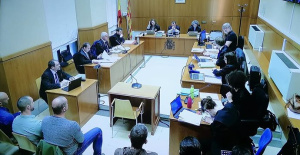 Sentences of up to 7 years for four police officers for illegal detention and injuries to a young man in Barcelona
Sentences of up to 7 years for four police officers for illegal detention and injuries to a young man in Barcelona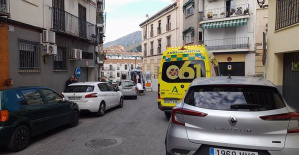 They investigate in Jaén the death of a six-year-old boy whose mother shows signs of self-harm
They investigate in Jaén the death of a six-year-old boy whose mother shows signs of self-harm The judge orders Rubiales to appear in court once a month and ask for permission if he travels abroad
The judge orders Rubiales to appear in court once a month and ask for permission if he travels abroad Scotland's First Minister resigns after the breakdown of the Government coalition
Scotland's First Minister resigns after the breakdown of the Government coalition How Blockchain in being used to shape the future
How Blockchain in being used to shape the future Not just BTC and ETH: Here Are Some More Interesting Coins Worth Focusing on
Not just BTC and ETH: Here Are Some More Interesting Coins Worth Focusing on They create a bank of machinery sounds to prevent breakdowns through artificial intelligence
They create a bank of machinery sounds to prevent breakdowns through artificial intelligence UPV students build a prototype of a wooden house to move to Equatorial Guinea
UPV students build a prototype of a wooden house to move to Equatorial Guinea The UA opens the call for the Impulso 2024 Awards for the best innovative business initiatives
The UA opens the call for the Impulso 2024 Awards for the best innovative business initiatives ALI, virtual assistant from Alicante, internationally recognized by the OECD
ALI, virtual assistant from Alicante, internationally recognized by the OECD A million people demonstrate in France against Macron's pension reform
A million people demonstrate in France against Macron's pension reform Russia launches several missiles against "critical infrastructure" in the city of Zaporizhia
Russia launches several missiles against "critical infrastructure" in the city of Zaporizhia A "procession" remembers the dead of the Calabria shipwreck as bodies continue to wash up on the shore
A "procession" remembers the dead of the Calabria shipwreck as bodies continue to wash up on the shore Prison sentences handed down for three prominent Hong Kong pro-democracy activists
Prison sentences handed down for three prominent Hong Kong pro-democracy activists ETH continues to leave trading platforms, Ethereum balance on exchanges lowest in 3 years
ETH continues to leave trading platforms, Ethereum balance on exchanges lowest in 3 years Investors invest $450 million in Consensys, Ethereum incubator now valued at $7 billion
Investors invest $450 million in Consensys, Ethereum incubator now valued at $7 billion Alchemy Integrates Ethereum L2 Product Starknet to Enhance Web3 Scalability at a Price 100x Lower Than L1 Fees
Alchemy Integrates Ethereum L2 Product Starknet to Enhance Web3 Scalability at a Price 100x Lower Than L1 Fees Mining Report: Bitcoin's Electricity Consumption Declines by 25% in Q1 2022
Mining Report: Bitcoin's Electricity Consumption Declines by 25% in Q1 2022 Oil-to-Bitcoin Mining Firm Crusoe Energy Systems Raised $505 Million
Oil-to-Bitcoin Mining Firm Crusoe Energy Systems Raised $505 Million Microbt reveals the latest Bitcoin mining rigs -- Machines produce up to 126 TH/s with custom 5nm chip design
Microbt reveals the latest Bitcoin mining rigs -- Machines produce up to 126 TH/s with custom 5nm chip design Bitcoin's Mining Difficulty Hits a Lifetime High, With More Than 90% of BTC Supply Issued
Bitcoin's Mining Difficulty Hits a Lifetime High, With More Than 90% of BTC Supply Issued The Biggest Movers are Near, EOS, and RUNE during Friday's Selloff
The Biggest Movers are Near, EOS, and RUNE during Friday's Selloff Global Markets Spooked by a Hawkish Fed and Covid, Stocks and Crypto Gain After Musk Buys Twitter
Global Markets Spooked by a Hawkish Fed and Covid, Stocks and Crypto Gain After Musk Buys Twitter Bitso to offset carbon emissions from the Trading Platform's ERC20, ETH, and BTC Transactions
Bitso to offset carbon emissions from the Trading Platform's ERC20, ETH, and BTC Transactions Draftkings Announces 2022 College Hoops NFT Selection for March Madness
Draftkings Announces 2022 College Hoops NFT Selection for March Madness

